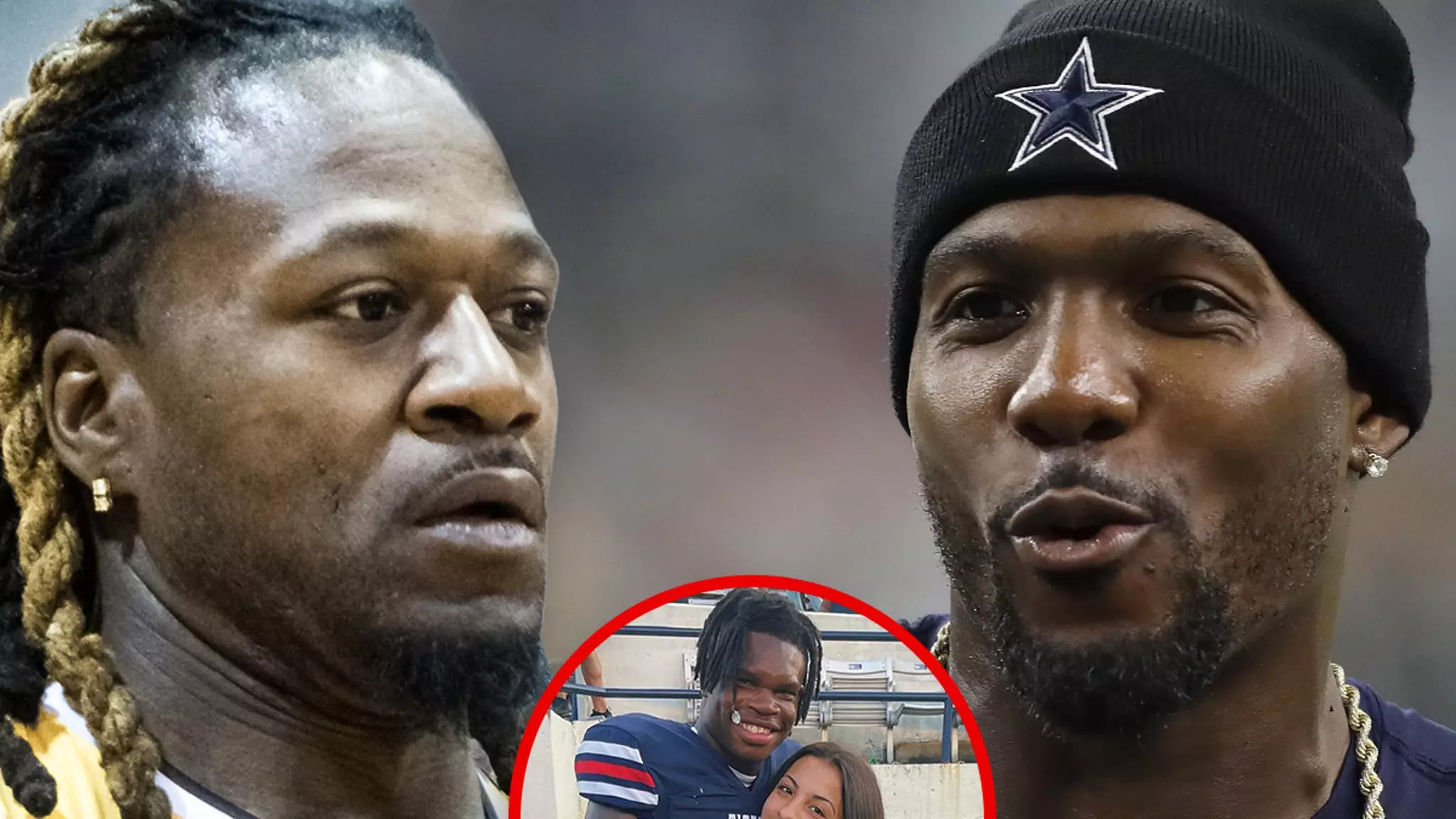In the world of professional sports, athletes are often not just celebrated for their performance on the field but also scrutinized for their personal lives off of it. Recently, Pacman Jones has brushed aside the opinions of former NFL player Dez Bryant regarding the relationship between rising star Travis Hunter and his fiancée, Leanna Lenee. Jones’s outrage highlights a broader commentary about the responsibilities and limits of public commentary on personal relationships, particularly in the world of sports.
Jones’s vehement response to Bryant underscores a growing trend where former athletes weigh in on the lives of current players, often without full context or understanding. The response from Jones is a reminder that even public figures have the right to privacy concerning their personal lives. He argues that external opinions are unwarranted and highlights the nuances of understanding the dynamics of a private relationship.
The public’s fascination with the relationships of athletes has skyrocketed with the rise of social media platforms, where everything can be broadcasted in real-time. Travis Hunter and Leanna Lenee’s romance has become fodder for social media scrutiny, and many fans have not hesitated in sharing their unsolicited opinions. This phenomenon raises questions about how careful we should be when commenting on the lives of public figures.
Dez Bryant’s remarks urging Hunter to reconsider his choice of partner reflect a misguided approach that fails to respect individual autonomy. Jones points out a crucial aspect: no outsider can truly know the intricacies of a relationship, nor the mutual satisfaction it provides. The uninvited public discourse raises ethical questions about the line between public interest and invasion of personal life.
Jones has expressed frustration over what he perceives to be a lack of respect for individual choice among professional athletes. His statement emphasizes that, at the core of any relationship, it’s the understanding and connection between the individuals involved that truly matters. He asserts that not only should mutual satisfaction be acknowledged, but the judgment from outside observers is often misplaced.
Moreover, Jones argues that it is unprofessional for players and fans alike to criticize their peers over such personal matters, particularly those that do not directly impact their career performance. The idea that something so intimate can be dissected publicly brings to light the often silicon-smooth veneer that the spotlight casts on athletes—one that does not reflect the genuine complexities of their lives.
Pacman Jones’s impassioned plea serves as a compelling call for compassion and restraint in the realm of public commentary. As fans and observers of the sports world, the focus might be better placed on celebrating accomplishments rather than speculating on personal dynamics. Perhaps it is a reminder for all to take a step back and recognize that behind every stat and highlight reel, there are individuals with feelings and lives that deserve privacy.
The criticism and scrutiny athletes face in their personal lives often detracts from the essence of the sport itself. There is a delicate balance that needs to be maintained, and for celebrities like Travis Hunter and Leanna Lenee, as well as those engaged in public discourse about their lives, understanding and respect should take precedence. Ultimately, as Jones suggests, it would be wise for everyone to re-evaluate their opinions and perhaps just “shut the f*** up” when it comes to matters that do not concern them.


Leave a Reply